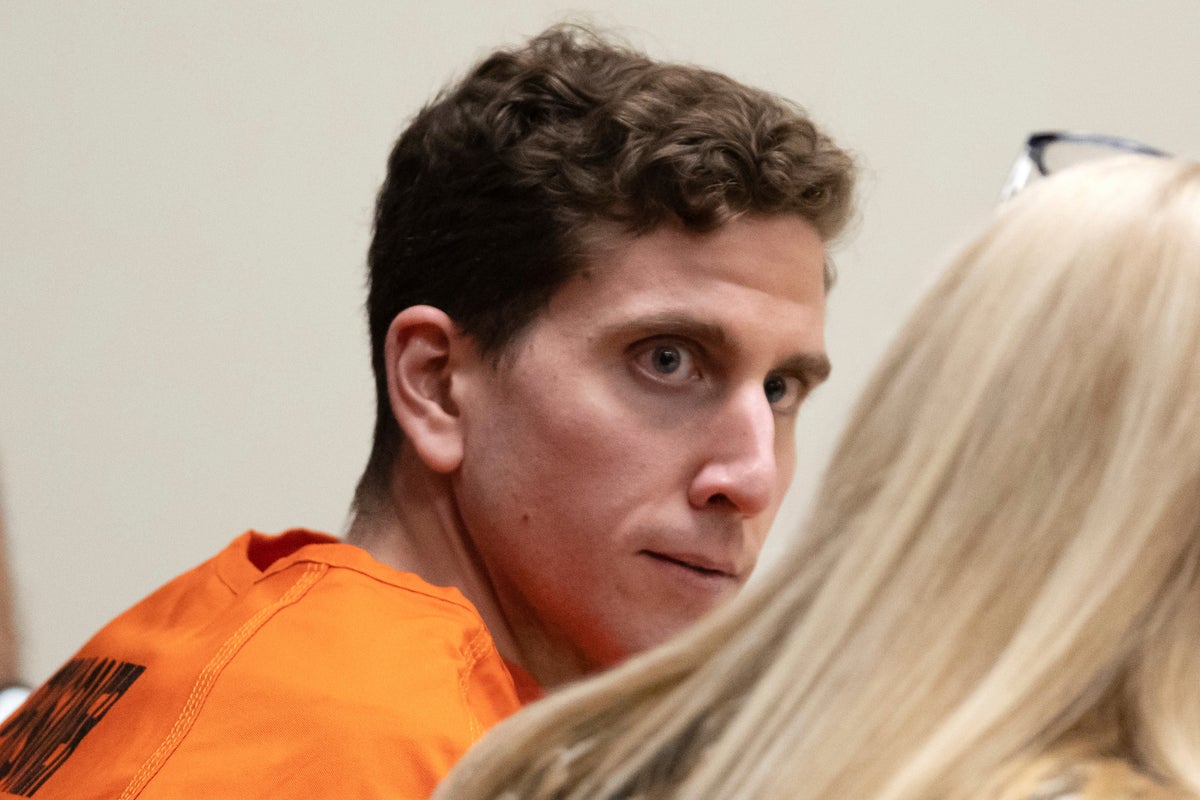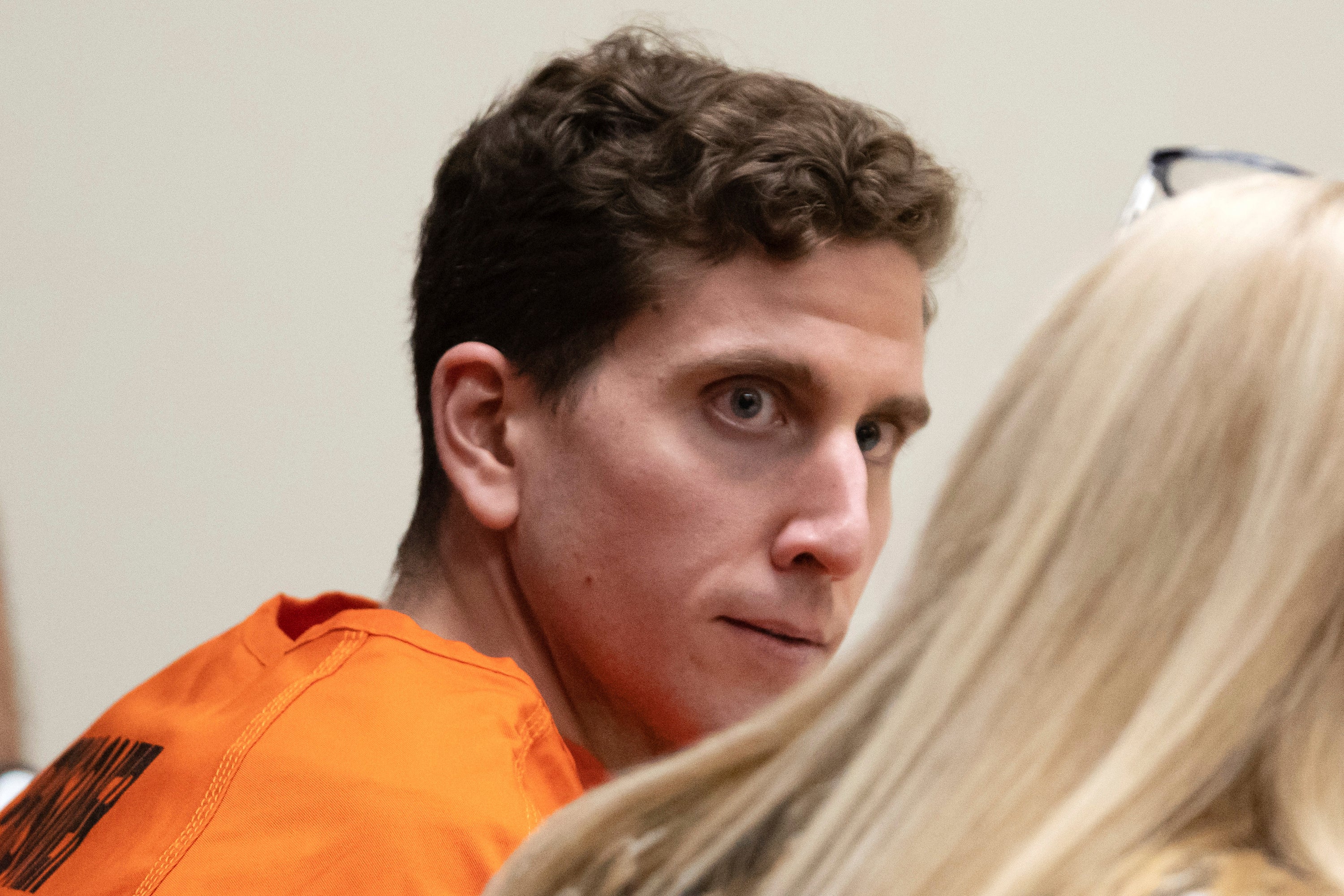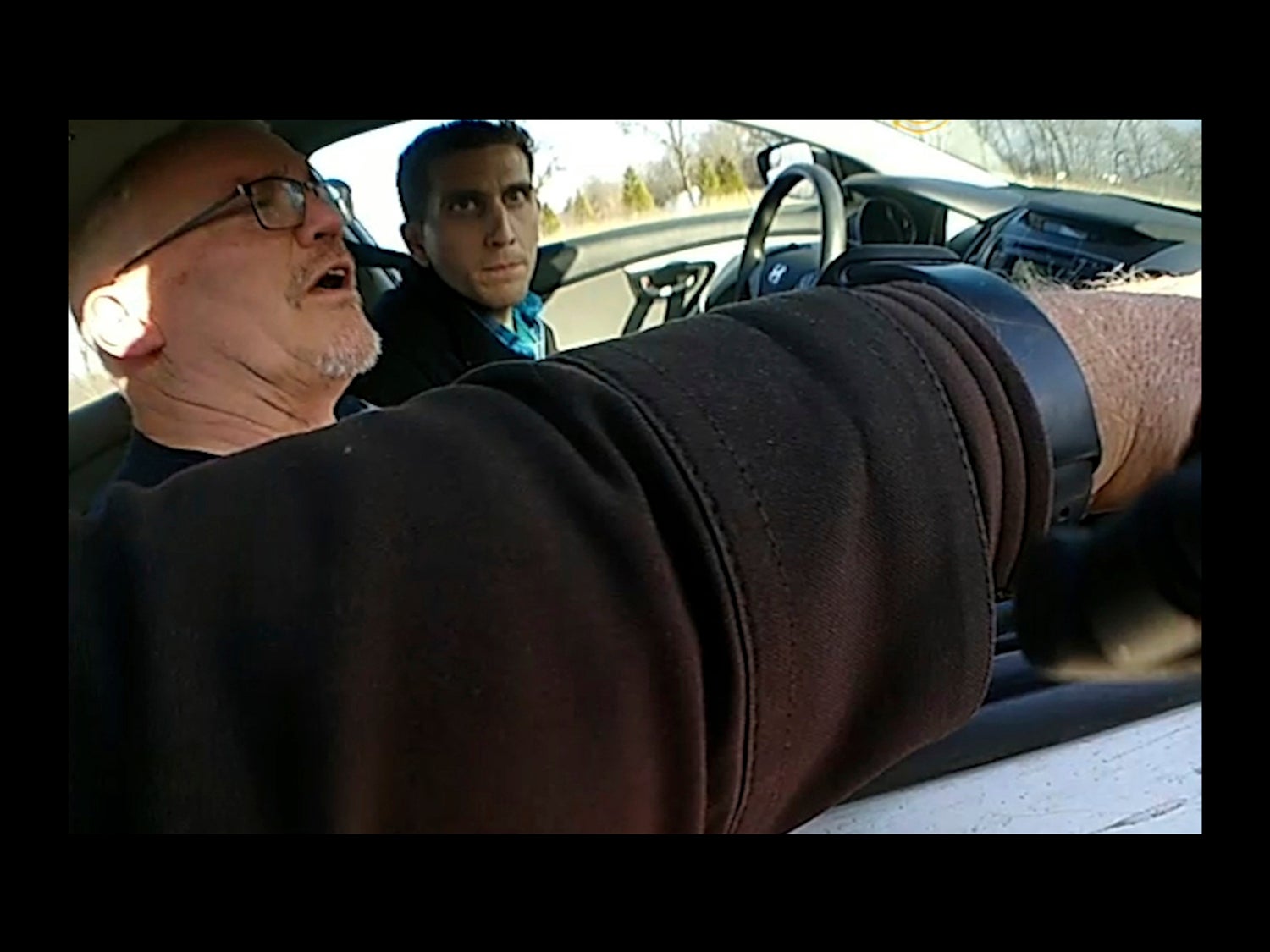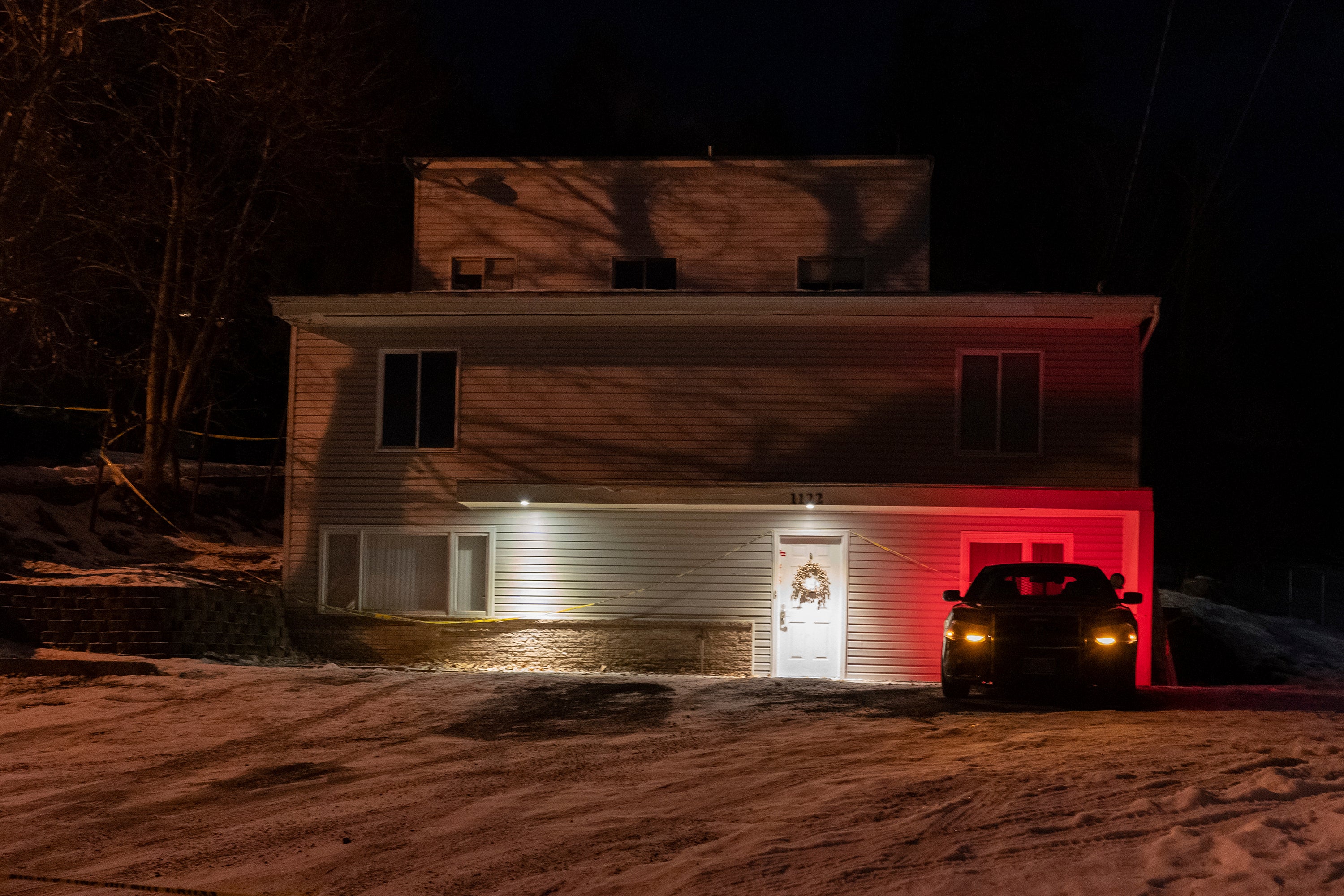
Bryan Kohberger appeared to vanish for several hours while he was under surveillance by police investigating the University of Idaho murders, it has been revealed.
Surveillance teams had been tasked with keeping eyes on the 28-year-old criminology PhD student after he became a “person of interest” in the 13 November murders of Kaylee Goncalves, Madison Mogen, Xana Kernodle and Ethan Chapin in Moscow, Idaho.
But, in the early morning of 13 December, when he set off on a cross-country drive with his father from his apartment at Washington State University (WSU) to his family home in Pennsylvania for the holidays, FBI agents “lost” the accused quadruple killer.
The shocking revelation came to light in Air Mail’s “The Eyes of a Killer: Part Two”, citing law enforcement sources who admitted that Mr Kohberger managed to slip the net almost as soon as his white Hyundai Elantra pulled out of the parking lot at his graduate housing complex.
For the next “several alarming hours – or more,” the man believed to have brutally stabbed the four students to death had “seemingly vanished,” the outlet reported.
Investigators desperately scoured automated licence-plate readers (ALPRs) in nearby states to try to find any signs as to Mr Kohberger’s car driving through.
Hours later, the car finally pinged in Loma, Colorado – around 900 miles away from Pullman – and the surveillance operation resumed.
It is unclear exactly how long Mr Kohberger’s movements were unknown, but it is a roughly 15-hour drive from Pullman to Loma.
The route the father and son duo took across the US was not the most direct journey – something that reportedly came at Mr Kohberger’s insistence and for some unknown reason.
His father Michael later told a mechanic that he had looked up the route to Pennsylvania and found the quickest route to be down the I-90 interstate, reported Air Mail.

That journey would have taken around 36 hours.
But instead, Mr Kohberger claimed that there would be “wintry conditions” along that route and that they should instead travel south towards Colorado – a route that added roughly six or seven hours to the journey.
Once surveillance teams were back on Mr Kohberger’s tail in Colorado, law enforcement hit another potential issue when the suspect was pulled over by police twice in his vehicle while driving through Indiana.
Both stops took place just minutes apart on 15 December – one time by county police and the other by state police – for driving too close to a vehicle in front.
Bodycam footage was previously released from both traffic stops, showing a startled Mr Kohberger behind the wheel and his father in the passenger seat.
According to Air Mail, the stops sparked concerns among the FBI surveillance teams who feared the “possibilities were too dangerous” as to what could play out – with law enforcement officers across the country and the public at the time on the lookout for a white Hyundai Elantra in connection to the Idaho murders.
But in both cases, the father and son spoke cordially with the officer who then let them go with a warning – and appeared to make no connection to the wanted vehicle.
For the next two weeks, Mr Kohberger was kept under surveillance while he stayed at his parents’ home in Albrightsville for the holidays.
One night, he was spotted dumping trash in a neighbours’ bin.
The trash was seized and DNA evidence found on it was used to tie him to a knife sheath left behind by the killer at the victims’ home, according to an affidavit.
On 30 December, Mr Kohberger was finally arrested in an early-morning raid on the family home. He is now behind bars in Moscow charged with murder.

Officials in Moscow have not addressed the account that they allegedly lost the accused killer for several hours.
They are also unlikely to do so, due to a gag order preventing law enforcement officials and the defence and prosecution teams from speaking out about the high-profile case.
The gag order, which was issued as Mr Kohberger was being extradited from Pennsylvania to Moscow to face charges, was broadly expanded earlier in January to also ban any attorneys representing survivors, witnesses or the victims’ family members from talking or writing about the case.
News organisations are asking a judge to pull back the scope of the gag order, saying that media access to officials can provide the public with important context in such high-profile criminal cases.
The affidavit, released earlier this month, gave new details about what led investigators to the suspect but still offered no connection between the victims and Mr Kohberger.
The bombshell documents did reveal that investigators believe Mr Kohberger may have stalked the student home in the run-up to the mass murder, with cellphone data placing him around the property 12 times before 13 November.
At the time of the murders, investigators believe Mr Kohberger turned his cellphone off in order to try to avoid detection.
However, cellphone data places him close to the home on King Road at around 9am on 13 November – suggesting that he returned to the scene of the crime just hours after allegedly murdering the four victims at around 4am, the affidavit reveals.
As well as cellphone data, the affidavit reveals that other evidence also led them to arrest Mr Kohberger for the student murders.
Police said that his DNA was found on a knife sheath left behind at the scene by the killer and his white Hyundai Elantra was caught on surveillance footage at the crime scene at the time of the murders, the affidavit reveals.
One of the victims’ surviving roommates was also able to partially describe the killer to investigators after she came face to face with him in the aftermath of the murders.
Earlier this month, police in Washington unsealed search warrants for Mr Kohberger’s apartment in Pullman and his office at Washington State University (WSU).
The searches were carried out on 30 December – the same day that he was taken into police custody in Pennsylvania.
The unsealed documents reveal that investigators seized a string of items from his home including possible human and animal hair strands, a disposable glove, items with red and brown stains and a computer.

No items were seized from his office which he shared with other PhD students.
The murder weapon – a fixed-blade knife – was not recovered during the searches and it is still unclear where it may be.
No motive has been given for the attack.
Mr Kohberger is next scheduled to appear in court on 26 June for his preliminary hearing.
The entire week has been set aside for the hearing – when evidence of the case against Mr Kohberger will be laid out for the first time in court and Mr Kohberger is likely to enter a plea on the charges.
Until then, Mr Kohberger will be held behind bars at Latah County Jail after he was ordered to be held on no bail for a second time.
As a criminal justice PhD student at WSU, he lived just 15 minutes from the victims over the Idaho-Washington border in Pullman. He had moved there from Pennsylvania and began his studies there in August, having just completed his first semester begore his arrest.
Before this, he studied criminology at DeSales University – first as an undergraduate and then finishing his graduate studies in June 2022.
While there, he studied under renowned forensic psychologist Katherine Ramsland who interviewed the BTK serial killer and co-wrote the book Confession of a Serial Killer: The Untold Story of Dennis Rader, the BTK Killer with him.
He also carried out a research project “to understand how emotions and psychological traits influence decision-making when committing a crime”.
Now, he is facing life in prison or the death penalty for the murders that have rocked the small college town of Moscow and hit headlines around the globe.







